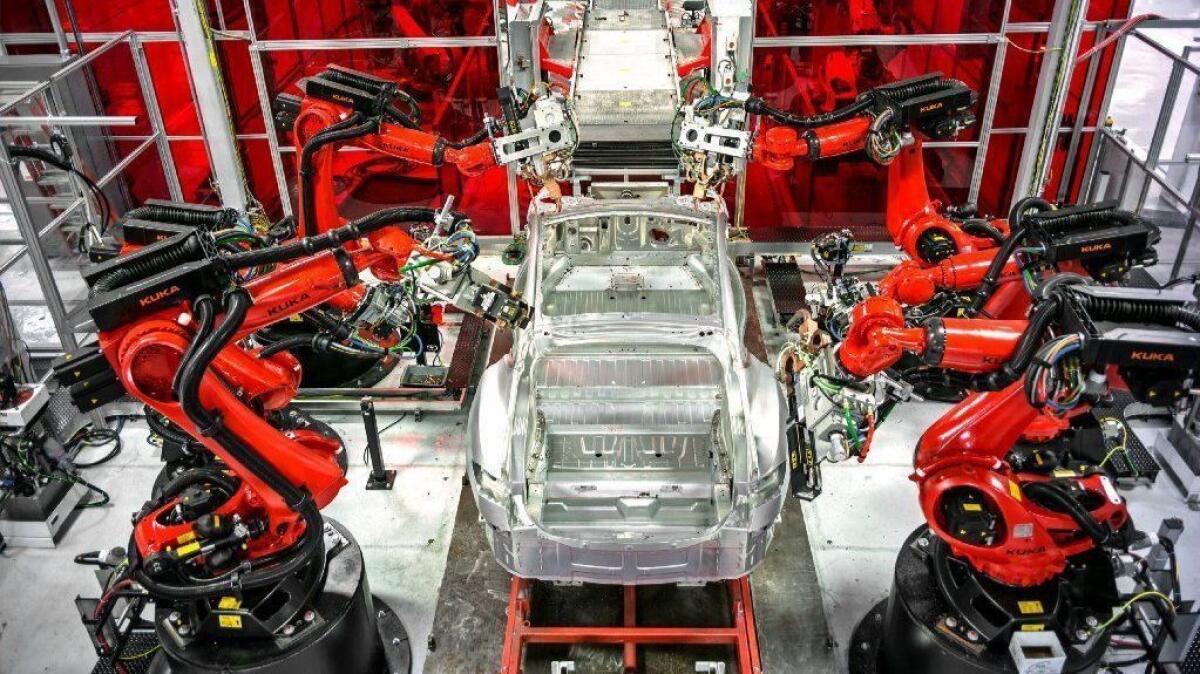Readers React: Don’t fear automation and artificial intelligence. Humans will always be in control — and employed

To the editor: I am an electrical engineer with the skills to make automation happen, and I believe the future is not as bleak as presented in the article predicting millions of Californians could soon be out of work.
Artificial intelligence is not magic, and we still have to build and program devices capable of implementing it. Where autonomous vehicles are concerned, remember that aircraft have employed autopilot systems for decades. As an instrument-rated private pilot, I would require additional training before implementing any form of autopilot. In other words, aircraft require a skilled person to be at the controls.
Automation can actually create more jobs at all skill levels. For example, there was a time when people owned exactly one shirt that was hand made. With automation, ownership of more than one shirt became the norm, and thus employment opportunities increased.
We need to understand that computers, artificial intelligence and machinery are designed and developed by human beings. Automation costs money, and if there is so much of it that mass unemployment is a possibility, there will not be enough money in the economy to support automation. There will always be plenty of work to do.
I could write more about this, but I need to manually clean my apartment.
Kevin Rose, Goleta
..
To the editor: The real threat to jobs is unregulated capital markets.
The increased productivity gains from automation and the resulting increased leisure time could potentially be a tremendous social good that benefits everyone with greater wealth and more free time to enjoy it — but only in an economic system structured for equitable distribution of those gains. For this to occur, public administration is required, either in the form of significant public oversight of private capital markets or some degree of socialization.
When the productive resources and the wealth they create are concentrated in the hands of a very few plutocrats in an unregulated capital market, automation further concentrates and cements their economic and political elitism, exponentially increasing wealth inequality.
Ultimately, this is where the struggle for income equality must receive greater attention.
Douglas Dunn, Escondido
Follow the Opinion section on Twitter @latimesopinion and Facebook
More to Read
A cure for the common opinion
Get thought-provoking perspectives with our weekly newsletter.
You may occasionally receive promotional content from the Los Angeles Times.










